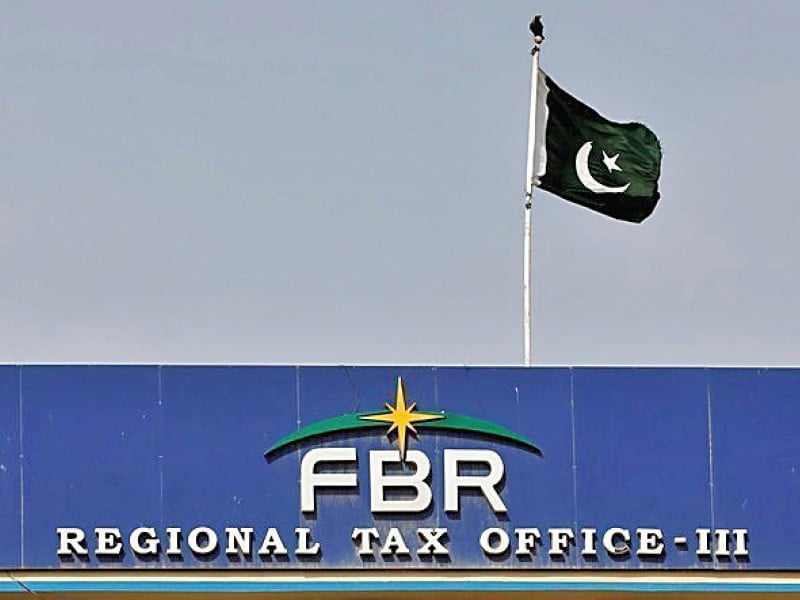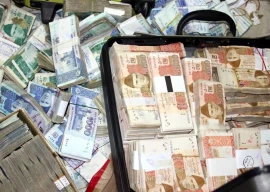
The Federal Board of Revenue (FBR) has missed August’s collection target by a margin of Rs102 billion despite taking advances. It, now, blames the import compression for the big shortfall that has increased prospects for a mini budget.
The FBR on Sunday released a statement to explain the reasons behind the massive shortfall in tax revenues.
“A cumulative growth of almost 35% has been achieved in the collection of domestic taxes—on the import side the momentum could not be maintained due to continued compression in imports,” said the statement.
It added that in US dollar terms, imports in the country have declined by 2.2% in August 2024 as compared to last year. Similarly, the imports during August 2024 in Pakistan Rupee value also showed a decline of 7% as compared to August last year.
Irrespective of the reasoning behind missing the tax target, the FBR has failed to perform despite imposing a record Rs1.8 trillion in new taxes in the budget. The nation is now exposed to the prospects for a mini budget that could hit imports, incomes and fertilizer.
For the month of August, the government had given a Rs898 billion target to the FBR. But it could collect hardly Rs796 billion despite taking advances from Karachi, Lahore and Islamabad this week. It missed the target by Rs102 billion for the month of August.
Sources said that had the FBR not taken undue advances, the monthly collection would have been around Rs765 billion. For the first two months, the IMF had given a Rs1.554 trillion tax target to the FBR. “Against a target of Rs1.554 trillion, the FBR has collected Rs1.456 trillion in net revenue,” the taxman said.
It faced a shortfall of Rs98 billion for two months despite taking advances during the past couple of days.
The FBR said it also released refunds of Rs132 billion in two months, which were higher by 44% to resolve the exporters’ liquidity problems.
It successfully met its revenue target for July. The government aims to collect an additional Rs3.7 trillion in taxes from the struggling economy, including over Rs1.8 trillion in new taxes.
This has resulted in a maximum income tax rate of 39% for salaried individuals, with business owners facing a 50% tax rate. The government has also imposed an 18% tax on milk, infant milk, and fat-filled milk, as well as a 10% tax on stationery items.
Additionally, an 18% sales tax has been levied on imported vegetables and fruits from Afghanistan, and even everyday items such as buns and rusks have been taxed at 10% GST. Medical tests have also been subjected to tax.
For the first quarter (July-September), the IMF has set a tax collection target of Rs2.652 trillion for Pakistan, requiring the FBR to collect Rs1.22 trillion in September alone, an increasingly unlikely prospect given the poor performance in August.
But the FBR is still hopeful to achieve its quarterly target of Rs2.652 trillion despite needing Rs1.2 trillion this month alone.
“The FBR is likely to achieve the revenue targets of the first quarter as both the economic activity and imports are expected to show a healthy turnaround in the month of September due to lower policy rate and other interventions being made by the government in recent months.”
The details show that income tax collection for the first two months of the fiscal year amounted to Rs616 billion, which is Rs156 billion, or 26% higher than the previous year.
This increase was driven by higher banking profits and increased contributions from salaried workers, with income tax collections exceeding the two-month target by Rs36 billion.
Sales tax collections totalled Rs572 billion, up by Rs99 billion or 21% compared to the previous year, but still fell short of the target by Rs38 billion. The FBR collected Rs96 billion in federal excise duty, which was Rs16 billion or 19% higher than the previous year.
However, the excise duty target was missed by a significant margin of Rs39 billion, despite doubling the duty on cement and introducing new taxes on lubricant oil and property transactions.
Customs duty collections reached Rs172 billion, an increase of Rs6 billion or 4%, but still fell Rs56 billion short of the two-month target.
The cumulative growth in collection in two months was only 21%, which is half of the rate needed to hit the annual target—an indication that the annual target will be missed by a wide margin.
The press statement added the import of high duty items such as vehicles, home appliances, as well as miscellaneous consumer goods such as garments, fabrics, footwear etc have reduced significantly, changing the import mix. This trend has impacted collection of Customs duties as well as other taxes collected at import stage.




1725240104-0/Untitled-design-(4)1725240104-0-165x106.webp)








1725083820-0/Untitled-design-(24)1725083820-0-270x192.webp)
1725096749-0/Untitled-design-(1)1725096749-0-270x192.webp)









COMMENTS
Comments are moderated and generally will be posted if they are on-topic and not abusive.
For more information, please see our Comments FAQ